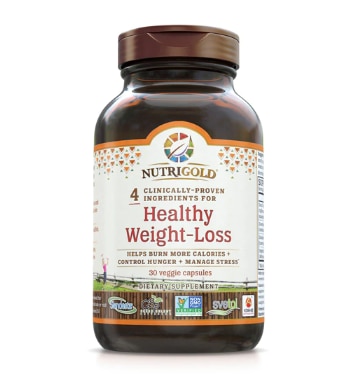Eating fewer calories is a proven way to lose weight. Now, there is evidence that it might also put a brake on the aging process.
Healthy people who cut back on calories can slow the pace of aging by 2% to 3%, according to researchers at the Columbia Aging Center at Columbia University Mailman School of Public Health.
The study’s findings suggest that intermittent fasting and time-restricted eating might have benefits that go far beyond a slimmer waistline, the researchers say.
Amanda Sauceda, a registered dietitian nutritionist based in Long Beach, California, says the results of the study are intriguing.
“This is pretty interesting, to see how food can influence our health on such a deep level,” says Sauceda, who was not involved in the study.
However, she notes that although calorie restriction offers some benefits, it also can backfire if not done correctly.
“Knowing that food is central to people’s culture, customs, and just general enjoyment, I don’t think calorie restriction is always possible or helpful,” she says.
What the study found
Previous research has found a link between calorie restriction and slower aging in animals.
Worms, flies and mice on calorie-restricted diets all display slower biological processes of aging and remain healthier for longer.
However, the new study is the first to look into whether healthy, nonobese humans experience similar benefits from calorie restriction.
In the study — which was funded by the National Institute on Aging — the researchers employed an algorithm to measure changes in DNA biomarkers in the blood of participants.
After looking at the evidence, the researchers concluded that calorie restriction can result in a 10% to 15% reduction in the risk of dying early, similar to what one would expect after quitting smoking.
The pros of calorie restriction
In addition to potentially slowing the aging process, calorie restriction can offer other benefits.
For example, switching to a calorie-restricted diet might force you to eat more healthful foods, Sauceda says.
“When you restrict calories, you need to make them count,” she says. “So, a benefit can be focusing on nutrient-dense foods like fruits, vegetables, and whole grains.”
Such foods offer a variety of vitamins, minerals and phytochemicals that can help prevent chronic diseases, Sauceda notes.
Also, restricting calories for a short period also can help you to better understand your calorie needs, she says.
“You could use this time to help you become more in tune with your hunger and fullness cues,” Sauceda says.
For example, you might notice that you get full sooner than you thought. This can be an eye-opener for those who usually eat more simply out of habit.
The cons of calorie restriction
However, calorie restriction must be approached the right way, or it could backfire.
One of the surprising risks of calorie restriction is that in some cases, it could actually cause you to gain weight, Sauceda says.
“Restricting calories can damage your metabolism and contribute to weight gain,” she says. “When someone chooses an eating pattern that isn’t sustainable, it can be very easy to go off the diet, gain weight back, and then repeat the cycle.”
Signs that you might be restricting calories too much and throwing your metabolism off-kilter might include weight gain, cravings and changes in energy level.
If you experience such downsides, it might indicate that your approach to restricting calories “isn’t appropriate for you,” Sauceda says.
Cutting back on calories also can result in not getting enough protein, which can reduce your muscle mass. That makes it more difficult to perform tasks that require strength, she adds.
Should you restrict calories?
Sauceda acknowledges that she is not a major proponent of calorie restriction.
“Overall, this is an area that I am not a huge fan of because I think there are more potential cons then there are pros,” Sauceda says.
Before you begin to restrict calories, Sauceda says suggest finding out if another approach might be better for you.
“Someone who is looking to lose weight is often told to restrict calories, but it’s a safer spot to try looking at the quality of your calories first,” Sauceda says.
She says choosing better-quality calories from nutrient-dense foods can give you a diet that is “filling and better for your metabolism in the long run.”
Sauceda adds that she would not recommend calorie-restriction for those who have a history of eating disorders or body-image issues, or who have a habit of chronic dieting.
How to restrict calories in a safe way
However, if you decide that calorie-restriction is the right approach for you, Sauceda recommends starting small.
“Drastically cutting your calories by starting to skip meals isn’t setting you up for success and can also be detrimental to your relationship with food,” she says.
So, begin by looking for easy places to cut calories, such as reducing your portion size or skipping snacks.
Using a food-journal app on your phone also can be helpful because it establishes where you are starting from and allows you to closely monitor the changes you are making.
“This makes it much easier to make sure you start small and can help you stay on track,” Sauceda says.
Also, pay close attention to how your mind and body respond when you restrict calories.
“If restricting your calories makes you feel like it’s either feast or famine, then you won’t get any benefits,” Sauceda says.
Instead, you are more likely to end up restricting calories on a few days each week, but finding yourself succumbing to “cheat” days, or a weekend of binging.
“If you feel like you have to cheat on how you eat, then how you’re eating isn’t sustainable for you,” Sauceda says.




